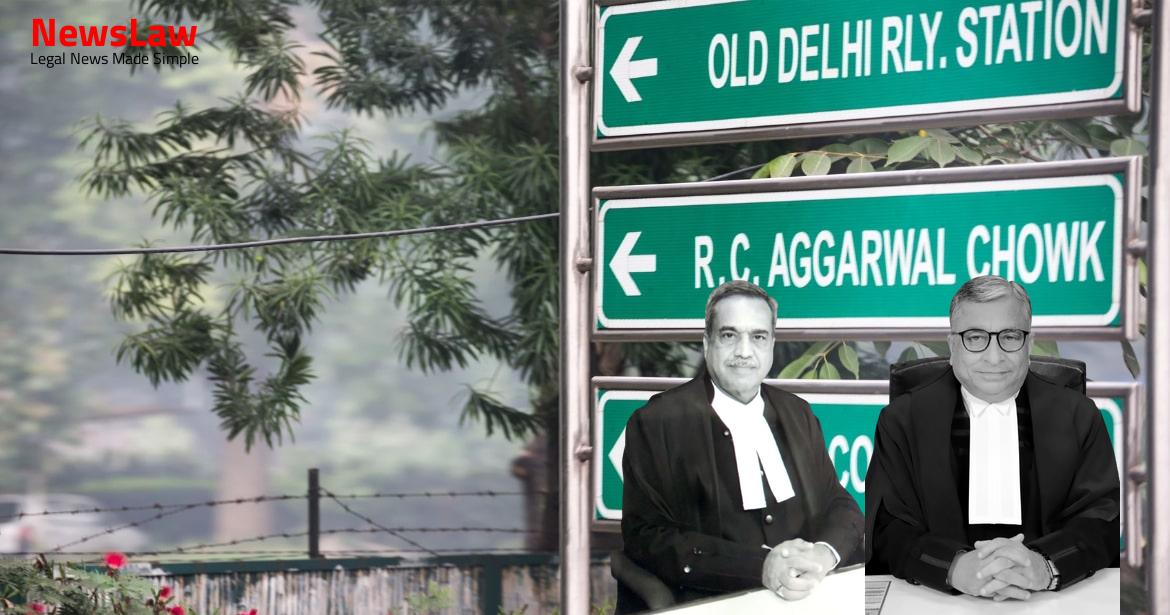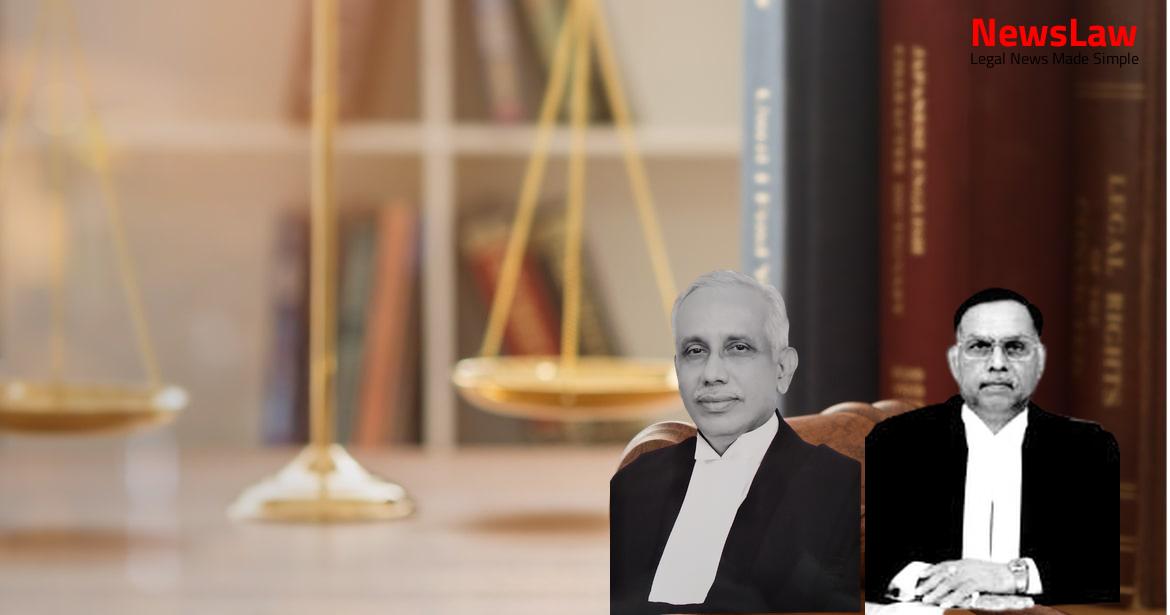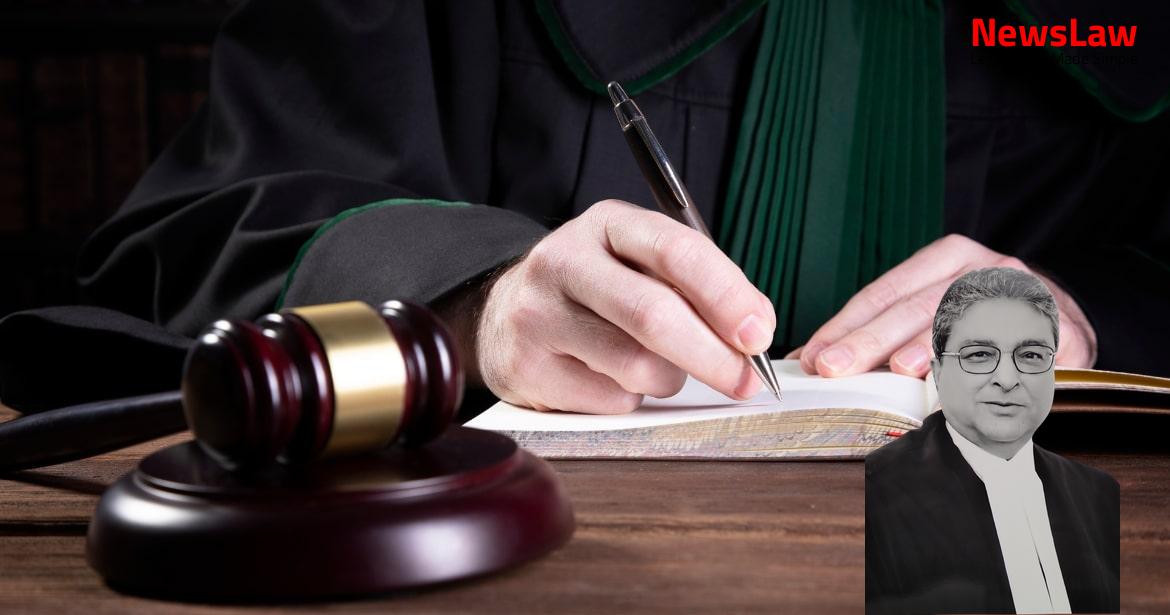Delve into the complex legal landscape of limitation laws and fraud allegations within civil suits. Discover how the court’s meticulous legal analysis on cause of action, fraud pleadings, and rejection of plaints under Order VII Rule 11 CPC shapes the outcome of the case. Gain insights into the critical importance of clear and specific fraud allegations in pleading, as well as the nuanced considerations around the issue of limitation as a mixed question of law and fact. Stay tuned to unravel the legal intricacies at play.
Facts
- The defendant-appellant filed applications to reject the plaints based on the law of limitation.
- The plaintiffs argued that the suits were filed promptly upon discovery of fraudulent misrepresentation in Sale Deeds.
- Plaintiffs claim that Sale Deeds were obtained through fraud by misrepresenting them as Joint Development Projects.
- Defendant allegedly deceived plaintiffs into signing the deeds without disclosing the true nature of the documents.
- The High Court dismissed the civil revision petitions, leading to the present appeals by the original defendant.
- The Trial Court rejected the applications under Order VII Rule 11 CPC on the grounds that the issue of limitation is a mixed question of law and facts, and thus not suitable for rejection at that stage.
- The defendant is dissatisfied with the Trial Court’s decision and has filed appeals.
Also Read: Challenging Legal Presumptions in Negotiable Instrument Cases
Arguments
- The petitioner argues that the suits are not barred by limitation as there are specific allegations of fraud in the plaints.
- They rely on Section 17 of the Limitation Act, stating that the discovery of fraud occurred in 2015, therefore the suits are not time-barred.
- Citing the case of Raghwendra Sharan Singh Vs. Ram Prasanna Singh, it is requested to reject the plaints under Order VII Rule 11(d) of the CPC.
- The petitioner mentions that previous suits were filed in 2014 related to the sale deeds, followed by the current suits in 2015/2016.
- Referring to the Salim D. Agboatwala case, it is argued that the plaintiffs were aware of the nature and contents of the sale deeds.
- Quoting judgements like Sopan Sukhdeo Sable, Assistant Charity Commissioner, Srihari Hanumandas Totala, and Ram Prakash Gupta, it’s emphasized that the cause of action and fraud must be clearly pleaded.
- It is asserted that vague averments of fraud are insufficient to file suits after a period of 10 years.
- The petitioner contests the opposition, arguing that the issue of limitation is a mixed question of law and fact to be determined at trial.
- Stating that only the plaint allegations should be considered in an application under Order VII Rule 11 CPC, the petitioner emphasizes the need for proving the alleged facts during the trial to benefit from Section 17 of the Limitation Act.
- Shri Jain, Senior Advocate for the respondents argued that the defendant filed the writ petition in the names of the plaintiffs and deceased owners.
- The plaintiffs were accused of getting sale deeds executed in the name of a Joint Venture Agreement.
- Blank documents provided by the plaintiffs were used for filing the writ petitions, as per the argument.
Also Read: Legal Analysis of Admission Irregularities in Educational Institutions
Analysis
- The cause of action for the suit arose on 19.09.2005 when the sale deed was executed in favor of the defendant.
- Various events prior to the execution of the sale deed were mentioned as part of the cause of action.
- The plaintiffs’ knowledge regarding the alleged fraudulent sale is vague and not clearly specified.
- The power under Order 7 Rule 11 CPC can be exercised at any stage of the suit if the plaint is found to be vexatious or meritless.
- The plaintiffs claimed that the sale deeds were obtained through fraud and misrepresentation, invoking Section 17 of the Limitation Act.
- The lack of specific details regarding how the fraud was committed or how the knowledge of fraud was obtained raises questions.
- The plaintiffs sought the cancellation of the sale deeds based on the alleged fraudulent means.
- The grounds for rejecting the plaint under Order VII Rule 11 CPC based on limitation were argued by both parties.
- The Court referenced the decision in T. Arivandandam v. T.V. Satyapal (1977) 4 SCC 467 and Raghwendra Sharan Singh
- Highlighted the importance of a cause of action being a bundle of facts that give the plaintiff the right to relief against the defendant
- Emphasized that the cause of action must include some act done by the defendant
- Explained that a cause of action is not limited to the actual infringement of the right sued on but includes all material facts on which it is founded
- Stressed the necessity for the trial court to ascertain the materials for cause of action by examining the plaintiff thoroughly
- Clarified that a cause of action does not comprise evidence necessary to prove facts but includes every fact necessary for the plaintiff to obtain a decree
- Highlighted that every fact necessary for the plaintiff to prove to obtain a decree should be clearly set out in the plaint
- The plaintiffs attempted to bring the suits within the period of limitation through clever drafting
- The suits would have been barred by limitation otherwise
Also Read: Quashing of Enhanced Tuition Fee in Private Medical Colleges
Decision
- Present appeals allowed and succeed.
- No order as to costs.
- High Court’s judgment and order rejecting revision applications quashed and set aside.
- Trial Court’s orders rejecting applications under Order VII Rule 11 CPC refused to reject plaints quashed and set aside.
- Appellant’s applications to reject plaints on basis of limitation allowed.
- Plaints rejected on grounds of being barred by limitation.
Case Title: C.S. RAMASWAMY Vs. V.K. SENTHIL (2022 INSC 1046)
Case Number: C.A. No.-000500-000500 / 2022



